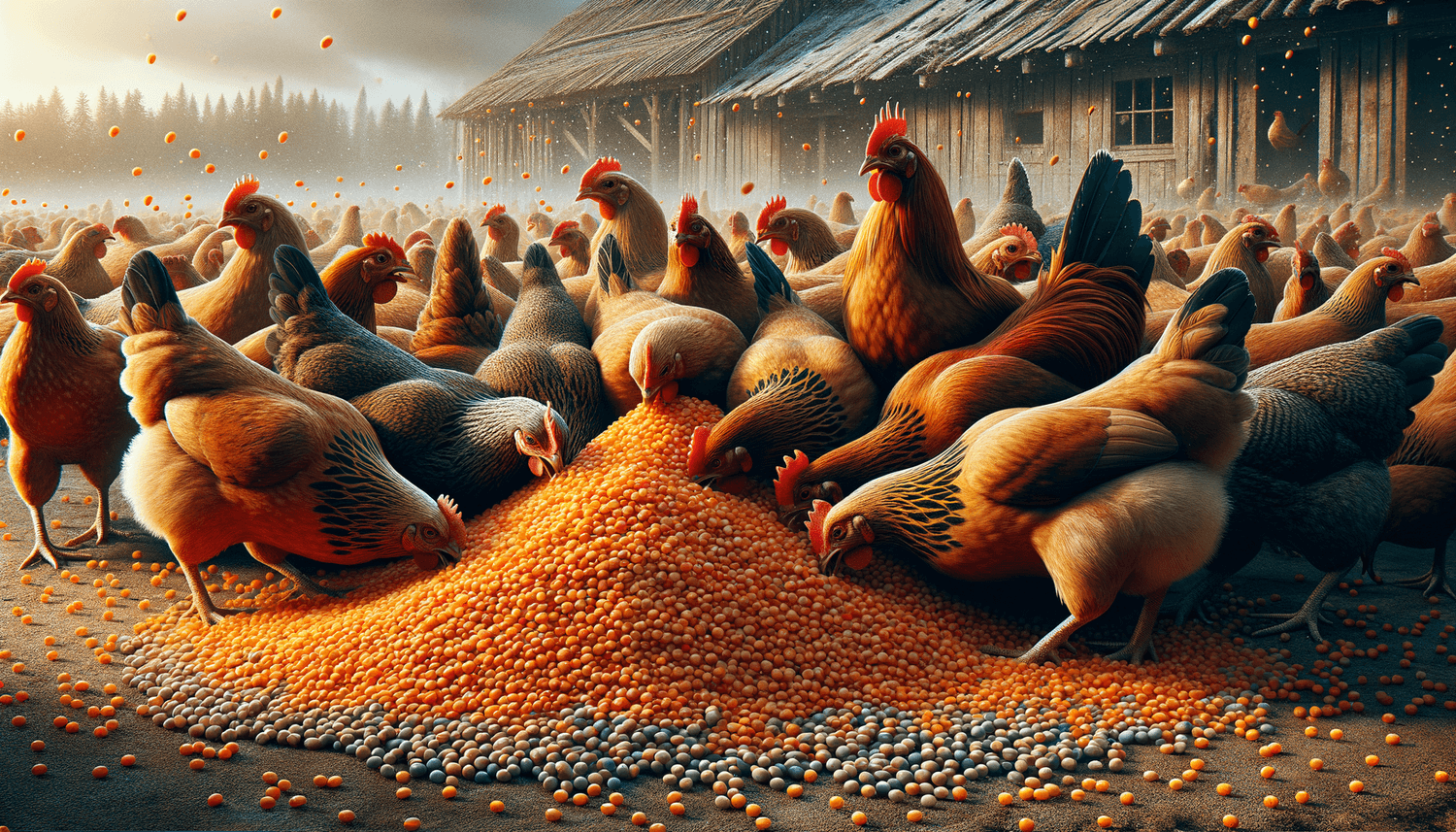If you’re a backyard chicken enthusiast, you know that these adorable fluffy peeps love pecking away at their food. And there’s nothing more rewarding than watching them cluck in delight at their tasty treats. But you may find yourself pecking around for answers when it comes to feeding your feathered friends certain foods, such as lentils. Fear not, dear reader, we’re here to dish out the scoop on whether chickens can eat lentils or not, the importance of a balanced diet, the nutritional benefits and/or risks, and even how to whip up these legumes for your lovely ladies. Let’s start this cluck-tacular journey into the world of lentils and hens!
Can chickens eat lentils?
Yes, chickens can eat lentils, and it’s safe for them to do so. Lentils are a nutritious legume that can provide protein and other essential nutrients to your chicken’s diet. But, it’s important to cook the lentils first, as raw or undercooked lentils contain anti-nutritional factors that can be harmful to chickens. Properly prepared lentils can make a healthy and appetizing treat for your backyard flock.
Finding balance in a chicken’s diet
Just like humans, chickens need a balanced diet to ensure they remain healthy and thriving. A well-balanced diet not only keeps your flock’s feathers fabulous but also aids in producing eggs of the highest quality. Chicken feed, the cornerstone of any chicken’s diet, plays a crucial role in achieving this dietary harmony.
A chicken’s diet should primarily consist of high-quality chicken feed, which should make up around 80-90% of their diet. This ensures they are getting the essential nutrients, vitamins, and minerals they need to flourish. But that doesn’t mean a chicken’s diet should be all work and no play! The remaining 10-20% of their diet can consist of treats like fruits and vegetables, which provide additional nourishment and variety to keep them clucking with joy. Just remember, moderation is key when it comes to special nibbles, as too many treats can lead to nutritional imbalances.
Nutritional value of lentils for chickens.
Feeding lentils to chickens offers a variety of nutritional benefits for your feathery friends. One of the primary advantages of introducing lentils into your chicken’s diet is their high protein content. Protein is essential for chickens, as it helps in maintaining strong muscles, supporting egg production, and promoting healthy feather growth. Lentils can significantly contribute to meeting the necessary protein requirements of chickens, especially during times of increased protein demand, such as molting or egg-laying periods.
Aside from protein, lentils also provide many essential vitamins and minerals for chickens. They are rich in B vitamins such as folate, thiamine, and niacin, which contribute to the overall well-being and optimal functioning of your chickens’ systems. Moreover, these little legumes contain an abundance of essential minerals, including iron, potassium, magnesium, and zinc, all of which are vital for proper growth and development.
Another benefit of adding lentils to your chicken’s diet is that they contain a good amount of dietary fiber. Fiber aids in digestion and can help regulate your chicken’s gastrointestinal system. Furthermore, lentils have a relatively low fat content, making them a healthy option for your flock to snack on, without causing excessive weight gain or other health issues related to high-fat diets.
Nutrition table of lentils for chickens.
| Information | Description |
|---|---|
| Nutritional Value | High in protein, B vitamins, minerals like iron, potassium, magnesium, and zinc, and dietary fiber |
| Suggested Serving Size | Small portions, as treats making up no more than 10-20% of their overall diet |
| Safe Feeding Practices | Fully cook lentils before feeding them to chickens to eliminate anti-nutritional factors |
| Preparation | Rinse, soak, and cook lentils until soft, then cool and serve as a treat |
| Potential Risks | Feeding raw or undercooked lentils can be harmful; overfeeding can lead to nutritional imbalances |
| Hydration | Lentils do not provide significant hydration, so ensure continuous access to clean drinking water |
| Digestion | The dietary fiber in lentils helps with digestion and maintaining a healthy gastrointestinal system |
| Seasonal Availability | Lentils are widely available year-round in most regions |
| Other Benefits | Contributes to strong muscles, healthy feathers, and supports egg production |
How to prepare lentils for chickens
Now that you know the nutritional benefits and potential risks associated with feeding lentils to your chickens, it’s essential to familiarize yourself with the proper preparation methods. Luckily, it’s a simple process that can be easily incorporated into your regular chicken care routine.
Start by rinsing the lentils thoroughly under running water to remove any dirt and debris. Next, soak the lentils for a few hours or overnight to soften them and make them easier to cook. After soaking, drain the water and place the lentils in a pot with fresh water, using a ratio of three cups of water per one cup of lentils. Bring the water to a boil, then reduce the heat and let the lentils simmer until they’re soft and tender, which should take about 20-30 minutes. Make sure to cool the lentils down to room temperature before serving them to your flock. This simple preparation process eliminates anti-nutritional factors and ensures a tasty and nutritious treat for your chickens.
Combining lentils with other treats
Lentils can be combined with other chicken-friendly treats like fruits, vegetables, and grains to create a nutrient-packed, mouth-watering medley. Some popular pairings include mixing cooked lentils with chopped vegetables like carrots, spinach, or peas, or combining them with cooked grains such as rice or quinoa. When creating these delightful mixtures, always be mindful of portion sizes to avoid overfeeding and disrupting the balance of your chicken’s diet.
In conclusion, lentils can be a nutritious and delicious treat for your chickens when prepared and served correctly. By incorporating this protein-rich legume into your flock’s diet, along with other wholesome treats, you can support their overall well-being and keep them clucking with contentment.

















